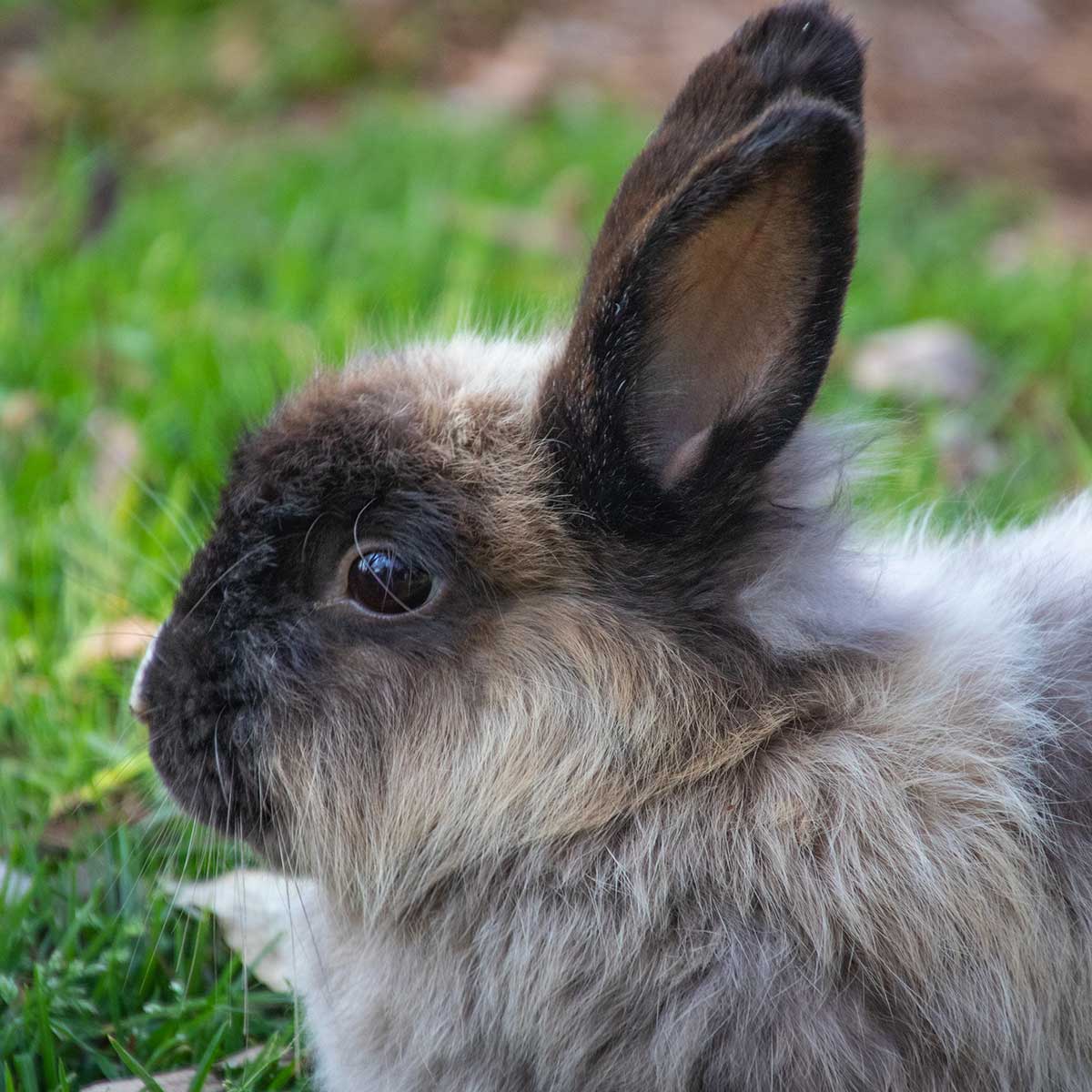
It’s important in some situations to keep rabbits and small furries calm, as smaller pets can be nervous during vet visits and car trips.
There may be certain situations where you need to keep rabbits and small furries calm, which include fireworks, new environments, vet visits or introducing them to new pets.
They will often freeze and sit perfectly still, while this looks as though they are behaving beautifully, it is often a fear response when terrified. There are some common signs that your rabbit or small pet could be stressed, which include, freezing, sitting hunched, reluctance to move, wide staring eyes, shaking, heavy breathing, chewing of bars, hiding or circling enclosure and potentially aggression.
Just like cats and dogs, there are a number of situations that can cause anxiety or stress in rabbits and small furies. These can include:
People – without proper socialisation and handling from a young age, some animals can become very anxious when picked up or examined. Remember, tipping rabbits on their back makes them still, but through fear. This is called trancing and should never be done.
Other animals – many small animals would, in wild situations, be eaten by species similar to the dogs and cats we keep as pets. Being around an animal they see as a predator can be very scary. If they do not get on with an individual of the same species they are paired with, this can also cause anxiety.
Travel – any travel, including to a vet practice, means moving from their safe space into a pet carrier and often into a care where the noise and movement can be very scary.
Environmental changes – changing your pet’s enclosure is something we all do to help keep them interested and happy, but this change can be strange. If enclosures are not the correct size to allow normal behaviour this will also be stressful.
Noise – loud or surprising noises, such as fireworks or banging within the home e.g. building works will be scary for small animals.
Boredom – if they get bored and do not have enough stimulus to keep their brain active, they will become frustrated.
Pain or illness – always ensure your pet is health checked to ensure these are not a factor.
To help reduce stress and anxiety, there are some positive things you can do to keep rabbits and small furries calm:
Handling
Ensure your pet is regularly handled and used to the normal checks carried out within the veterinary practice to reduce stress when they occur. Never trance your rabbit to keep them still.
Get them used to pet carriers
Allow access to their pet carrier all the time where possible. This will allow the carrier to be a safe space for them. Ensure all carriers are top opening to allow for them to be taken out in a less stressful way.
Ensure correct environment
Both the correct size to allow normal behaviour, but also plenty of toys, mental stimulation and the ability to forage for food.
Keeping away from predators
Keep all small animals away from dogs, cats and other possible predator species such as ferrets or birds.
Company
Always ensure they are either kept with others of their own species (for rabbits, guinea pigs etc) or alone (some species of hamster) to ensure they are safe and to reduce anxiety.
Protect them from loud noises
Including moving any outdoor pets to a cool indoor space e.g. garage during firework seasons.
Keep the routine
To help keep rabbits and small furries calm, try to keep everything as normal as possible to help to reduce fear and stress.
Consider Nutracalm
Consider using Nutracalm for your pet, which is specifically formulated by vets to naturally calm anxious pets and reduce unwanted or unruly behaviour in dogs, cats and small furies.
If you are worried about your pet, speak to your vet who is best placed to monitor your pet’s health. Ask your vet about Nutracalm and other ways to support your pet during the moving process.

